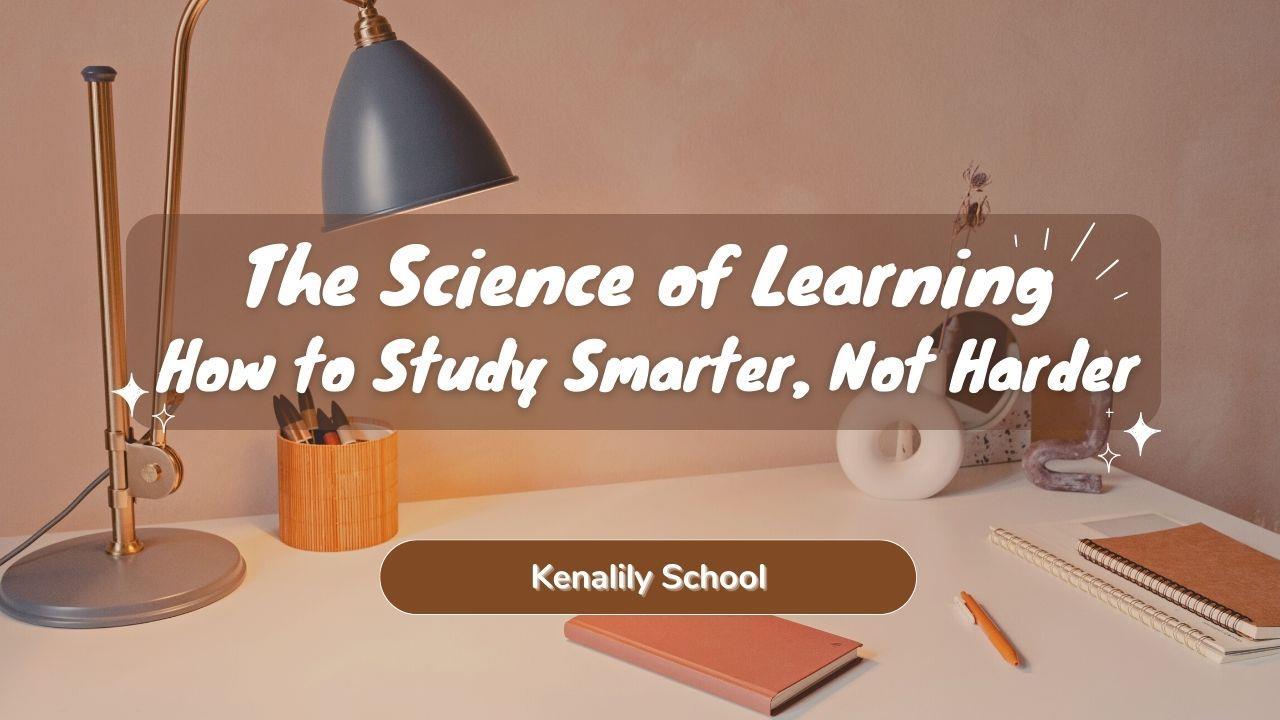The Science of Learning: How to Study Smarter, Not Harder
Learning is an essential part of human life. We learn new things every day, whether it's at school, work, or in our personal lives. However, many of us struggle to retain the information we learn, which can be frustrating and discouraging. In this blog post, we'll explore the science of learning and provide tips on how to study smarter, not harder.

The Science of Learning

Learning is a complex process that involves our brains forming new connections between neurons. When we learn something new, our brain creates a neural pathway that connects the information to our existing knowledge. Over time, with repetition and reinforcement, these pathways become stronger, making it easier for us to retrieve the information when we need it.
One key aspect of the science of learning is understanding the difference between short-term memory and long-term memory. Short-term memory is our ability to hold information in our minds for a brief period, typically up to 30 seconds. Long-term memory, on the other hand, is the ability to retain information for an extended period, sometimes for a lifetime.
To move information from short-term memory to long-term memory, we need to engage in activities that reinforce the neural pathways. This is where effective studying comes in.
How to Study Smarter, Not Harder
Space out your studying
Research has shown that spacing out your studying over several sessions is more effective than cramming all at once. By spacing out your studying, you give your brain time to consolidate the information, making it easier to retrieve later.
Use active learning techniques
Active learning techniques are methods that engage your brain in the learning process, such as taking notes, summarizing information, or teaching the material to someone else. These techniques are more effective than passive learning methods, such as reading or listening to lectures, because they require you to actively engage with the material.
Test yourself
Testing yourself is another effective way to reinforce the neural pathways and move information from short-term to long-term memory. Practice tests, flashcards, and quizzes are all useful tools for testing yourself.
Get enough sleep
Sleep is crucial for learning and memory consolidation. When we sleep, our brains process the information we've learned, forming new connections and strengthening existing ones. Aim for at least 7-8 hours of sleep each night to ensure your brain has enough time to consolidate the information you've learned.
Minimize distractions
Distractions can disrupt your ability to concentrate and retain information. When studying, try to minimize distractions by finding a quiet place to work and turning off your phone or other devices.
Take breaks
Need to relax is significant for keeping focus and avoiding burnout. Try the Pomodoro technique, which involves working for 25 minutes and then taking a 5-minute break, to help you stay focused and productive.
Use visual aids
Visual aids, such as diagrams, charts, and graphs, can help you recognize and recall complex information. Use them to organize and summarize the material you're studying.
Stay motivated
Motivation is key to effective studying. Find ways to make the material interesting and relevant to your life, and set achievable goals for yourself.
Conclusion
Studying is a critical part of the learning process, but it doesn't have to be difficult or frustrating. By understanding the science of learning and implementing effective study techniques, you can improve your ability to retain information and achieve your academic and professional goals. Remember to space out your studying, use active learning techniques, test yourself, get enough sleep, minimize distractions, take breaks, use visual aids, and stay motivated. With these tips, you'll be able to study smarter, not harder, and achieve success in your learning endeavors.
